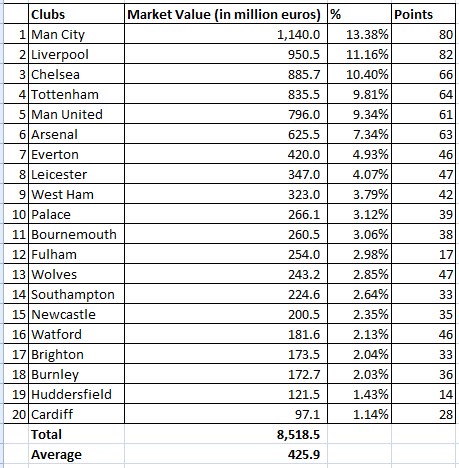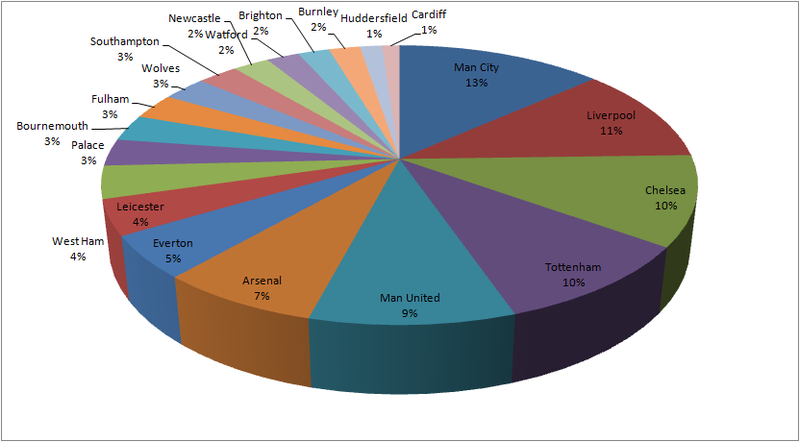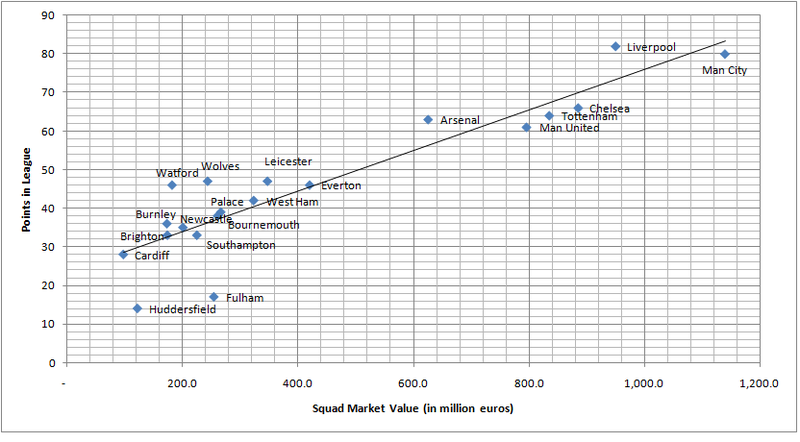
The world we live in is full of inequalities, there are inequalities in many forms and in many places, even in football. Football clubs are more than just sports teams, they are also big businesses. And just like any other businesses, size does matter. The bigger your company is, the easier for you to dominate the market. I am intrigued by the possibility that there is a correlation between the size of the clubs (in monetary terms) and how they fare in the league. Do wealthier clubs tend to perform better than other clubs? Do more expensive squads have more chance to win the league? Let's see the numbers for EPL 2018-2019.

The table above shows us the market value of EPL clubs squad in the 2018-2019 season and their points in the league until game week 33, with some clubs still have one more game to play. The order is from the biggest squad market value to the smallest one. Manchester City is the EPL club with the most expensive squad (€1.14b), followed by Liverpool (€950.5m), Chelsea (€885.7m), Tottenham Hotspur (€835.5m), Manchester United (€796.0m), and Arsenal (€625.5m). They are the big six of the EPL; clubs with squad market value bigger than the league average(€425.9m). Cardiff City is the only EPL club with squad market value less than €100m (€97.1m). The squad market value of all EPL clubs is €8.51b.

The big six clubs own 61.43% of the market value, while the other 14 clubs own only 38.57%. We can clearly see the difference in the level of playing field here. But, do these numbers correlate with their performance in the league? Let's see how much points they get until game week 33.

The scatter diagram above shows us the positive correlation between clubs squad market value and their points in the league. The more expensive your squad is, the more points you get in the league. The big six clubs in terms of squad market value are also the big six clubs in terms of points in the league, they play in a whole different level. There are two outliers, Fulham and Huddersfield whose points in the league don't reflect their squad market value. But for the rest, the pattern is pretty solid.
There are sometimes one season wonders like Leicester City when they won the title. But I believe the formula to maintain a club's dominance in the long term is by spending more.
But, what if the gap becomes wider and wider? To ensure the same level of playing field, do you think FIFA need to regulate this?
PS: This is the first article of 'Inequality in Football' series. I plan to cover top European leagues (EPL, Bundesliga, La Liga, Serie A, Ligue 1, and Eredivisie) and compare them to see inequality within and among leagues.
Comments